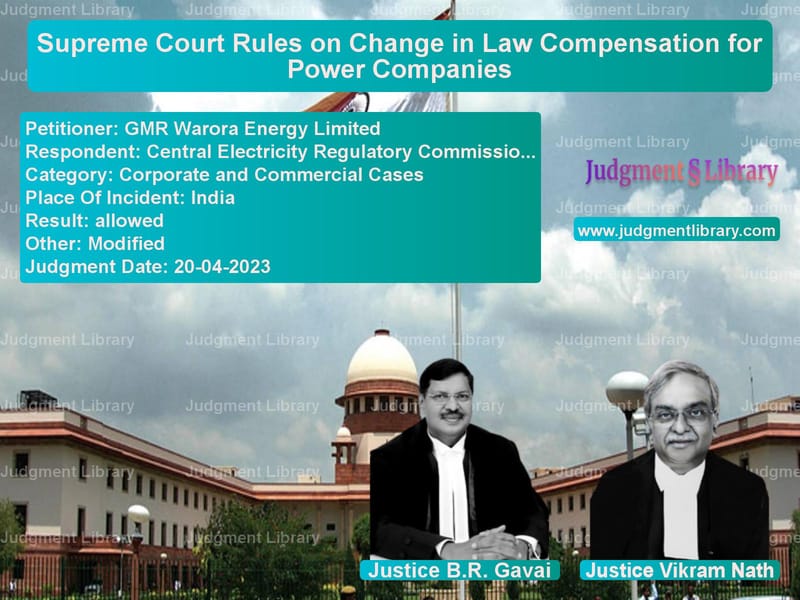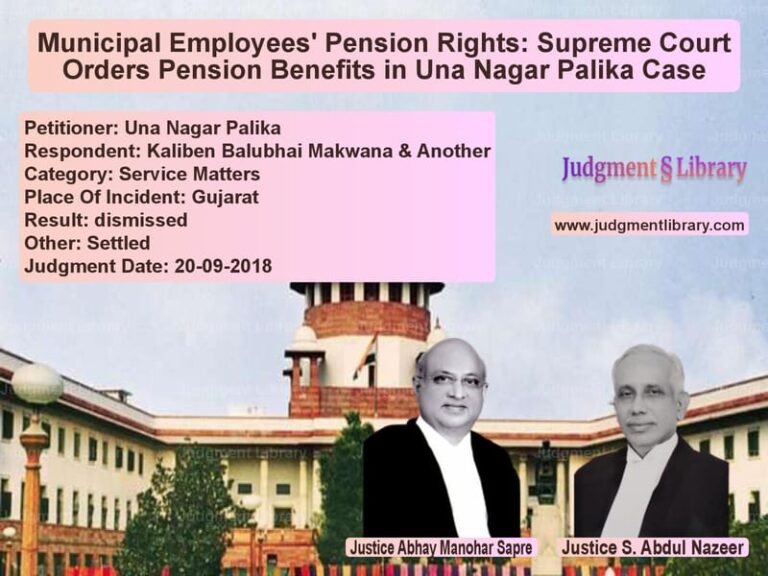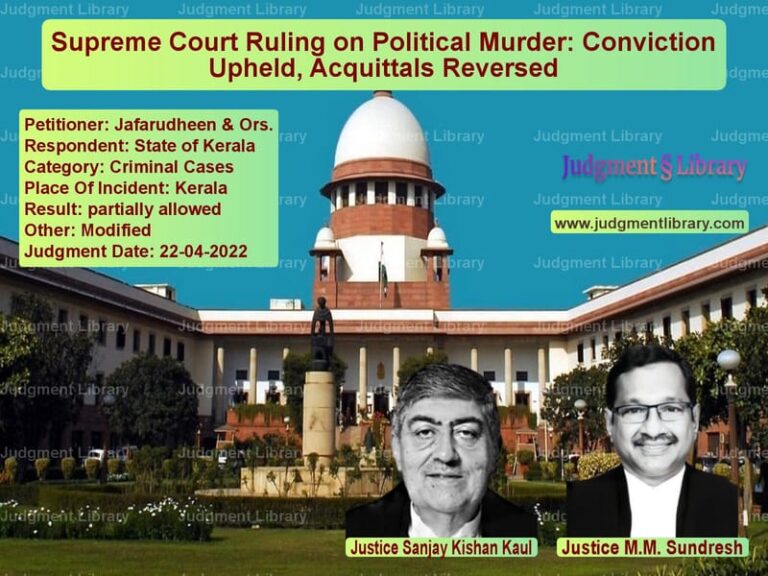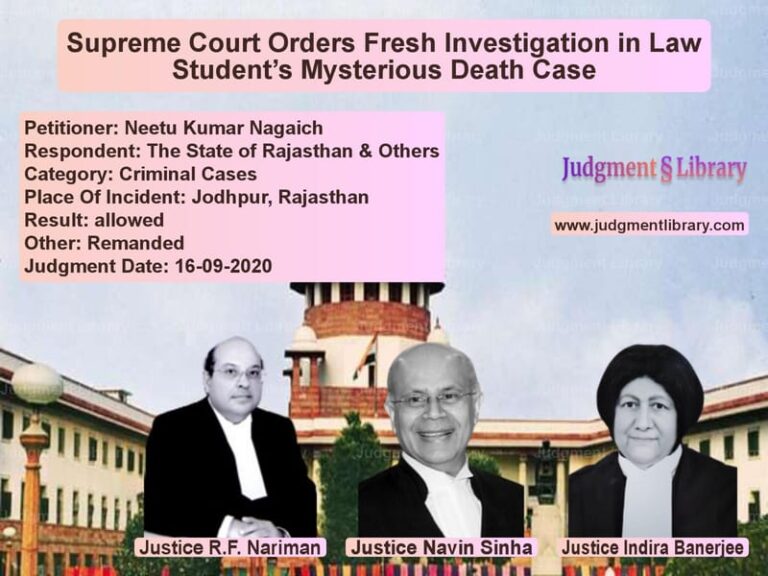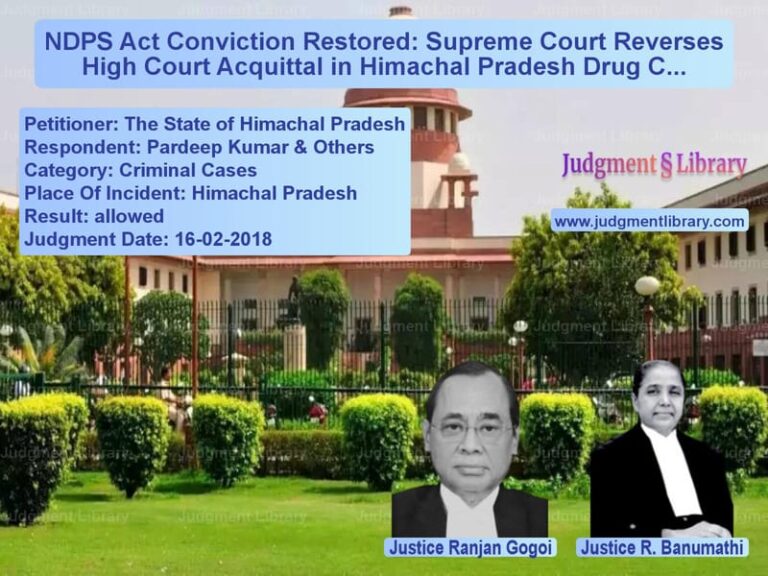Supreme Court Rules on Change in Law Compensation for Power Companies
The Supreme Court of India recently delivered a significant ruling in the case of GMR Warora Energy Limited vs. Central Electricity Regulatory Commission (CERC) & Ors., addressing key disputes related to Change in Law compensation under the Electricity Act, 2003. The ruling impacts multiple power generation companies and electricity distribution companies (DISCOMS), clarifying how statutory changes affecting fuel supply and operational costs should be compensated.
Background of the Case
The case involved multiple appeals from power generation companies and DISCOMS disputing compensation claims arising from regulatory and policy changes affecting coal procurement and power supply agreements. The appeals challenged orders from the Appellate Tribunal for Electricity (APTEL) and the Central Electricity Regulatory Commission (CERC).
One of the major issues was whether compensation for changes in coal distribution policies and other statutory levies should be granted under the principle of Change in Law as per the power purchase agreements (PPAs).
Key Legal Issues
The Supreme Court examined the following legal questions:
- Should power companies be compensated for increased costs due to changes in coal distribution policies?
- Are additional taxes and surcharges imposed by government entities eligible for Change in Law compensation?
- Is there a legal basis for power companies to claim interest on delayed compensation (Carrying Cost)?
Arguments by the Appellants (Power Generation Companies)
The power generation companies, including GMR Warora Energy Limited, argued:
- Change in Law events must be compensated: They contended that various regulatory changes, including modifications to the New Coal Distribution Policy (NCDP) and additional surcharges imposed by Coal India Limited (CIL) and Indian Railways, increased costs beyond what was anticipated at the time of bidding.
- Restitution principle applies: The appellants relied on the Supreme Court’s previous rulings, emphasizing that compensation should restore the affected party to the same economic position as before the regulatory change.
- Delay in compensation leads to financial losses: The companies argued that delayed payments should attract interest (Carrying Cost), as the additional costs impacted their financial stability.
Arguments by the Respondents (DISCOMS and Regulatory Authorities)
The distribution companies and regulatory authorities, including CERC, opposed the claims, arguing:
- No automatic entitlement: Compensation for regulatory changes should not be automatic, and each claim must be examined on merit.
- Bidding process factored in potential changes: DISCOMS argued that the bidders should have accounted for risks such as fuel cost variations in their pricing strategies.
- Compensation should be limited: DISCOMS contended that only direct regulatory changes affecting core operational costs should be considered for Change in Law relief.
Supreme Court’s Ruling
1. Regulatory Changes Qualify as Change in Law
The Court ruled that changes in the coal distribution policy, new taxes, and charges imposed by government entities constituted Change in Law events under the PPAs. It stated:
“The term ‘Law’ in PPAs includes all applicable rules, regulations, orders, and notifications by an Indian Governmental Instrumentality. Therefore, new charges levied by Coal India Limited and Indian Railways qualify as Change in Law.”
2. Compensation Must Follow the Restitution Principle
The Court reaffirmed the principle that Change in Law compensation must restore the power producer to the same financial position it was in before the change:
“The affected party must be compensated for additional costs incurred due to regulatory changes to maintain the economic equilibrium of the PPA.”
3. Carrying Cost is Payable on Delayed Compensation
One of the most crucial aspects of the ruling was the Supreme Court’s recognition that power generators were entitled to Carrying Cost (interest on delayed payments). The Court ruled:
“The restitution principle includes compensation for the time value of money. Therefore, power producers must receive Carrying Cost for delayed Change in Law payments.”
Key Excerpt from the Judgment
The Court concluded:
“The orders of the Appellate Tribunal for Electricity and the Central Electricity Regulatory Commission are modified to the extent that power generating companies are entitled to full compensation for Change in Law events, including carrying cost from the date of occurrence of the event.”
Conclusion
The Supreme Court’s decision in GMR Warora Energy Limited vs. CERC & Ors. sets a strong precedent for the power sector, ensuring that companies affected by regulatory changes receive full compensation. The judgment reinforces the principle that contractual obligations must be honored, and government-imposed charges must be reimbursed to maintain the financial viability of power producers.
The ruling is expected to bring greater clarity to future disputes involving Change in Law provisions in power purchase agreements, benefiting both generators and distribution companies by establishing clear guidelines for compensation claims.
Petitioner Name: GMR Warora Energy Limited.Respondent Name: Central Electricity Regulatory Commission (CERC) & Ors..Judgment By: Justice B.R. Gavai, Justice Vikram Nath.Place Of Incident: India.Judgment Date: 20-04-2023.
Don’t miss out on the full details! Download the complete judgment in PDF format below and gain valuable insights instantly!
Download Judgment: gmr-warora-energy-li-vs-central-electricity-supreme-court-of-india-judgment-dated-20-04-2023.pdf
Directly Download Judgment: Directly download this Judgment
See all petitions in Company Law
See all petitions in Bankruptcy and Insolvency
See all petitions in Corporate Compliance
See all petitions in Judgment by B R Gavai
See all petitions in Judgment by Vikram Nath
See all petitions in allowed
See all petitions in Modified
See all petitions in supreme court of India judgments April 2023
See all petitions in 2023 judgments
See all posts in Corporate and Commercial Cases Category
See all allowed petitions in Corporate and Commercial Cases Category
See all Dismissed petitions in Corporate and Commercial Cases Category
See all partially allowed petitions in Corporate and Commercial Cases Category

